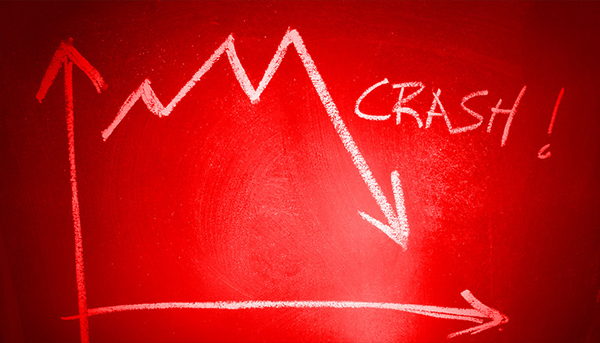Home /
Money Blog
Getting back to zero
Note: You can use any financial calculator to do this problem, but if you want the BEST, you can
get our
10bii
Financial Calculator for iOS, Android, Mac, and Windows!

More than one of my investing mentors underscore the point that return
of investment is more important than return
on investment, and this week's Money Blog underscores their reasoning - it can take quite a while to recover from losses, and once that time is lost, it's never coming back. Let's get into it.
THE SCENARIO
Back in 2007 - 2009, the S&P 500 (one of the 'benchmark' indices by which US stock market performance is measured)
lost 56.8% of its value. Like many people, I had a 401(k) that was nearly entirely invested in the stock market at that time, and my own retirement account value dropped precipitously, as could be expected.
The question: If I could reliably make 8% on my money after the crash, how many months would it make for my 401(k) to get back to its pre-crash balance? Ignore the effect of inflation - this question is about 'balance' and not 'value' - and assume that I do not contribute to my 401(k) after the crash.
THE SOLUTION
To solve this one, we'll look at the value of each post-crash dollar. Each dollar, post-crash, was worth 100 - 56.8 = 43.2 cents.
First things first, make sure the calculator is using 12 Payments per Year.
N: (this is what I'm trying to find)
I/YR: 8 (The question assumes that I can reliably get 8% on my money)
PV: -0.432 (Each pre-crash dollar was worth 43.2 cents after the crash)
PMT: 0 (I'm not contributing to the account while it recovers)
FV: 1.000 (Each post-crash dollar is back up to its pre-crash level at the end)
If I can earn 8% on my money, it takes my account balance 126.3 months to return to its pre-crash level. To put it another way, in September of 2019 (10 ½ years after March of 2009), my balance should be back where it was in October of 2007.
What do you think? Did you lose a lot in the 2008 crash, were you well-protected, or had you not yet started investing? What are you doing now to prepare for the next downturn? Let us know in the comments!
 More than one of my investing mentors underscore the point that return of investment is more important than return on investment, and this week's Money Blog underscores their reasoning - it can take quite a while to recover from losses, and once that time is lost, it's never coming back. Let's get into it.
More than one of my investing mentors underscore the point that return of investment is more important than return on investment, and this week's Money Blog underscores their reasoning - it can take quite a while to recover from losses, and once that time is lost, it's never coming back. Let's get into it.